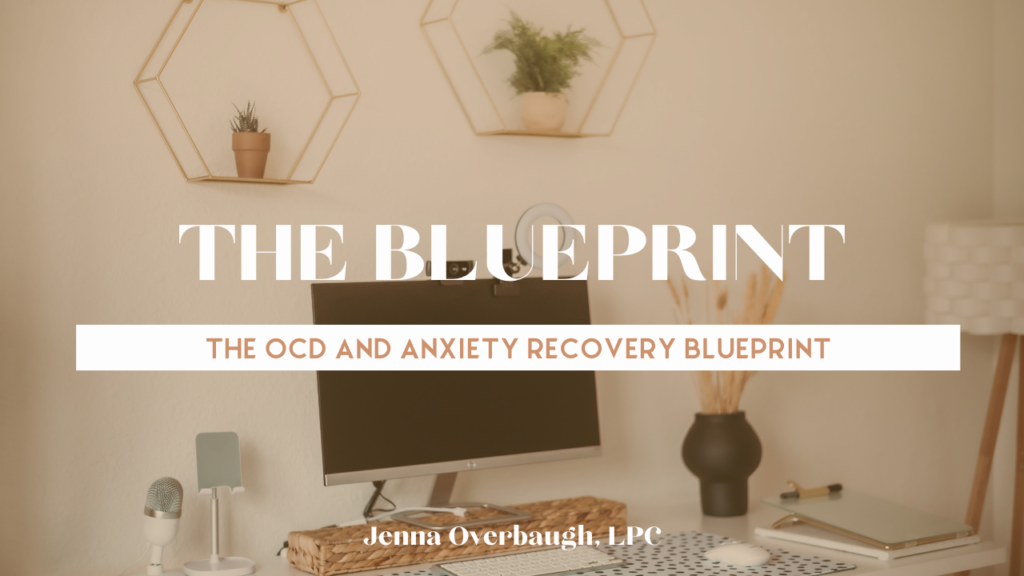Unraveling the Relationship Between Trauma and OCD: Insights from a Licensed Professional Counselor
April 16, 2024
If you’re reading this blog for the first time, I urge you to pause and catch up on our previous discussion and podcast episodes (#172 and #173) on trauma and OCD. We laid down some foundational knowledge that’s essential for understanding today’s discussion.
In our previous blog post and podcast episodes (#172 and #173), we discussed Nick’s journey with evidence-based treatment for PTSD and explored the intersection of PTSD and OCD. Before we dive into today’s topic, let’s reiterate something crucial: when we mention OCD, we’re addressing not just those diagnosed with OCD, but anyone grappling with obsessions, compulsions, and anxiety.
Navigating Trauma and OCD
Trauma often intertwines with OCD, amplifying its impact on individuals’ lives. While trauma doesn’t directly cause OCD, it frequently serves as a triggering factor, exacerbating symptoms and complicating the treatment process. Understanding this dynamic is pivotal for effective intervention.
Identifying Trauma in OCD
How can one discern if trauma is intertwined with OCD? It’s essential to look beyond formal diagnoses and examine the consequences of OCD on various facets of life. Trauma manifests in disruptions to relationships, work, and overall well-being, often stemming from the pervasive nature of OCD symptoms.
Challenging Misconceptions About Trauma Release
The notion of “releasing” trauma often oversimplifies the healing process. Unlike releasing a physical object, trauma is deeply ingrained and requires active processing, coping strategies, and facing your fears. Therapy, particularly evidence-based approaches like Exposure and Response Prevention (ERP), emphasizes confronting fears and reducing avoidance behaviors, fostering gradual desensitization and resilience.
The Role of Integrated Therapy
While talk therapy provides a supportive space for some conditions, an integrated approach combining evidence-based techniques is paramount for comprehensive treatment. Talk therapy in and of itself will not be helpful for, and could be harmful to, conditions like anxiety and trauma. ERP, coupled with cognitive strategies and self-compassion practices, equips individuals with practical tools to navigate both OCD and trauma.
Rethinking the Role of Therapists
Therapists play a pivotal role in guiding individuals through their healing journey. Rather than solely providing validation, therapists empower clients with actionable strategies and accountability. A balanced approach integrates validation with practical interventions, fostering tangible progress and long-term resilience.
Embracing Radical Responsibility
Empowerment lies in embracing radical responsibility, acknowledging that while we aren’t accountable for our past traumas, we hold agency in shaping our responses and seeking healing. Choosing to confront discomfort and engage in therapeutic interventions is a testament to our commitment to growth and resilience.
Conclusion
Understanding the intricate interplay between trauma and OCD is key to navigating the complexities of mental health. By embracing evidence-based strategies and adopting a holistic approach to treatment, individuals can reclaim agency over their lives and embark on a journey towards healing and resilience.
Resources for Your OCD and Anxiety Recovery
To learn more about OCD and anxiety recovery strategies and resources, visit my website at www.jennaoverbaughlpc.com. Here you can find additional support and guidance.
Want more content like this?
Episode #172 – Two Therapists, One Podcast: Unraveling OCD, Anxiety, and Trauma with Nick Overbaugh, Licensed Counselor
Episode #173 – Trauma, Intrusive Thoughts, and Radical Responsibility: Insights from Nick Overbaugh, Licensed Counselor
The OCD and Anxiety Recovery Blueprint

DISCLAIMER: Please keep in mind that Jenna is not your therapist. She does not provide you with individualized recommendations or advice. The information provided is intended as educational information only. Jenna cannot tell you what you should do, what you shouldn’t do, or give recommendations based on your unique situations or circumstances. Nothing on this page or Site should be construed as therapeutic recommendation or personalized advice. If you are in need of such services, please consult with a physician or other medical provider right away to determine the best course of action for you. We are not responsible for your use of this page, this website, or the contents within. NEVER DISREGARD PROFESSIONAL MEDICAL ADVICE OR DELAY SEEKING MEDICAL TREATMENT BECAUSE OF SOMETHING YOU READ OR ACCESSED THROUGH THIS WEBSITE AND CONTENT. For more information, please read the Terms and Conditions, Privacy Policy, and Disclaimer. Your continued use of this platform, this page, and the contents within constitutes as your agreement with this agreement.
© 2024 Jenna Overbaugh, LLC, All Rights Reserved
most popular episodes
Love my podcast?
Episode 112: Postpartum OCD and False Memory OCD
Imagine how in depth I can go in an online course. Instantly downloadable and game-changing. Take the next step towards an amazing life.